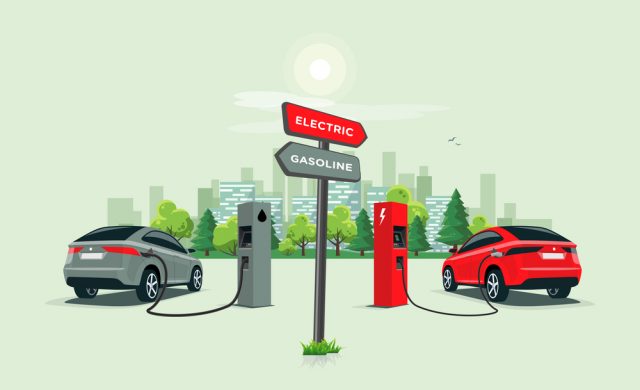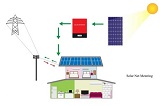Though the history of electric vehicles has been a long journey characterized by intermittent successes and failures, it seems today’s consumers are finally ready to embrace all the possibilities of electric cars. Compared with traditional gas-powered cars, EVs are quiet, clean and low-maintenance. They’re also fun to drive and better for the environment – qualities that sell themselves.
EV enthusiasts claim their vehicles are cheaper to own than standard gas-fueled models, but the truth behind this assertion deserves a bit more scrutiny.
Gas vs. Electricity
It’s easy to understand the appeal of bypassing the gas pump and charging your vehicle at home. The convenience of never having to stop for gas again is a compelling advantage of electric vehicle ownership, especially as EV manufacturers continue to improve the range their cars can travel on a single charge.

Skyrocketing fuel costs are one significant reason many drivers have switched from gas to electric, with the average cost of regular, unleaded gasoline reaching an all-time high of nearly 160 cents per litre in February 2022. Still, powering up your EV at home isn’t free, since it requires pulling electricity from the grid.
How Much Does It Cost to Charge an Electric Vehicle?
The answer to this question largely depends on where you live. Most Canadian provinces have a set rate and tax, but in Ontario, electricity pricing is less straightforward due to three separate time-of-use rates and a patchwork of electric providers that charge different fees to deliver power to your household. For example, consumers in rural Ontario pay more for electricity than anywhere else in the country – more than 20 cents per kilowatt-hour at peak times.
Your battery’s size, your chosen charging method and your vehicle’s maximum charging rate are other factors that influence how much you can expect to pay to recharge your EV in your garage or driveway. To calculate the cost of home charging, look at your most recent electric bill, then divide the number of kilowatt-hours you used into the bottom-line total. That simple formula will give you the price you paid per kWh.
Maximizing Your EV Ownership With Solar Panels
Some people who are new to electric car ownership find themselves surprised to realize how much their monthly utility bills increase due to keeping their vehicles fully charged. One way many savvy EV drivers combat this concern is by only charging during off-peak hours. Strategic timing can save you a dramatic amount of money over your EV’s lifespan.
Alternatively, solar panels are a wise investment for any electric vehicle owner. Switching to renewable sources has helped people across Canada declare their independence from the energy grid, slash their bills and reduce their carbon footprint. Harnessing the sun’s unlimited energy to power your home can fulfill all your household’s needs and more – in some cases, you may be eligible to participate in a net metering program and send excess energy back to the utility grid for credits.
To learn more about solar energy in Ontario, contact us today to request free quotes from our trusted partners!











